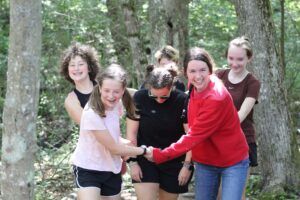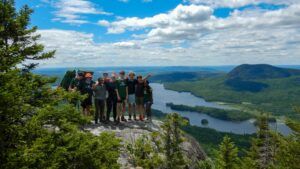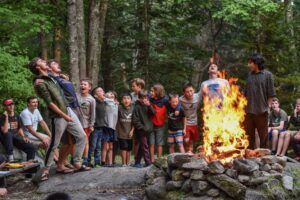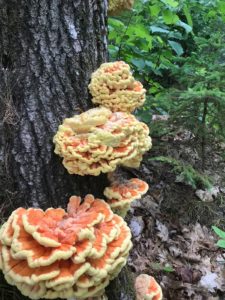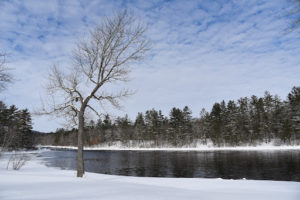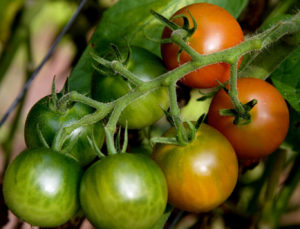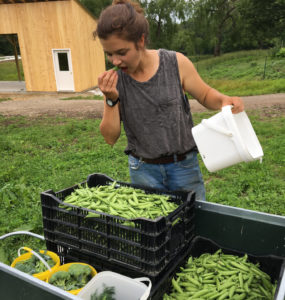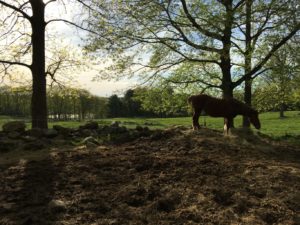A stretch of clear winter weather has allowed us to bring down several large oak trees as part of Chewonki’s ongoing forest management plan, with the the newly thinned areas opening the way for more light on the farm gardens. The farmers are happy. “This will make a tremendous difference in our production,” says Assistant Farm Manager Hilary Crowell, already looking forward to what will flourish in the suddenly sunnier areas.
The project is important for other reasons as well. Forester Harold Burnett, who began managing Chewonki’s forests when he ran the farm in the mid 1980s and has been doing it ever since, says the cutting gives work to local loggers and will contribute to the start-up of a wood pellet manufacturing plant in nearby Boothbay. “Ron Dostie, a talented logger, is doing the work,” says Harold, “and Erik Carlson, another excellent logger who has worked with Chewonki before, is finalizing a wood-processing facility, C & L Forestry Wood Pellets, that we are helping to launch by selling him a load of softwood from Chewonki trees.”

“This is an interesting story around local forestry,” agrees Farm Manager Megan Phillips. “Erik Carlson opened up his wood pellet plant as a means of having more steady work opportunities in the shoulder seasons or when unpredictable weather conditions do not allow for logging, which is happening more and more often because of climate change. The plant is manufacturing a sustainable heat source from local product, and Chewonki will be connected to this project, which is supporting local jobs, in the nascent stages by providing some of the softwood Erik needs.”
About 25 percent of our harvest is hardwood. The best of that will become furniture and flooring. Some will be sold as firewood. The rest will go to a pulp mill in Jay, Maine, for making paper. The softwood heading to C & L Forestry will mostly become pellets for heating; some of it will turn into grilling chips or animal bedding.
It can be hard to see trees come down, but the cutting going on this winter is a great example of waste-not/want-not and the interlocking benefits that careful use of natural resources brings on a community scale.
